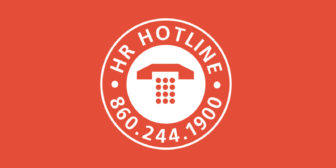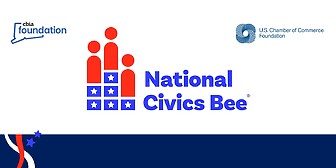What Counts as Wilful Misconduct Under Connecticut Law?

The following article first appeared on Pullman & Comley’s Labor and Employment Law blog. It is reposted here with permission.
As we turn the page to 2023 it’s as good a time as ever to review one of the most important concepts in unemployment compensation—wilful misconduct.
From an employer’s perspective understanding when the wilful misconduct standard is met is critical because it directly impacts unemployment compensation costs.
An employee terminated for engaging in wilful misconduct is not entitled to unemployment compensation, and the employer will not have such termination charged against its unemployment compensation account.
On the other hand, a termination for conduct that does not meet the wilful misconduct standard results in greater unemployment costs for the employer either through a higher experience rating or direct costs for reimbursable employers.
What Constitutes ‘Wilful Misconduct?’
Under Connecticut law the wilful misconduct standard can be met in one of two principal ways.
An employee can be found to have engaged in “deliberate misconduct in wilful disregard of the employer’s interest …,” or an employee can be found to have committed “a single knowing violation of a reasonable and uniformly enforced rule or policy of the employer, when reasonably applied, provided such violation is not a result of the employee’s incompetence …”
Under the first part of the definition, Connecticut regulations state that deliberate misconduct includes “any act or omission that is not consistent with the standards of behavior that an employer, in the operation of its business, should reasonably expect from an employee.”
Determining what conduct satisfies this standard is often case specific, but certain behavior almost always amounts to deliberate misconduct.
Determining what conduct satisfies this standard is often case specific, but certain behavior almost always amounts to deliberate misconduct unless there are special mitigating circumstances.
For instance, deliberate dishonesty or misrepresentation, the intentional falsification of company records, conducting personal business during work time, and leaving work without good reason for doing so all generally qualify as deliberate misconduct even in the absence of an explicit work rule prohibiting such conduct.
Notably, the deliberate failure to follow job instructions or procedures can also constitute deliberate misconduct as long as the employer can prove the employee knew or should have known what was expected for the task.
Violation of Policy
The second type of wilful misconduct is found when an employee violates a reasonable and uniformly enforced rule or policy of the employer.
To satisfy this standard, under Connecticut regulations an employer must establish that:
- The employee knew or should have known of the rule or policy because it was effectively communicated to the employee;
- The employee’s conduct violated the rule;
- The employee was aware they engaged in such conduct;
- The rule is reasonable in light of the employer’s lawful business interest and there is a clear relationship between the rule, the conduct regulated, and the employer’s lawful business interest;
- The employer uniformly enforced the rule in that similarly situated employees subject to the workplace rule are treated in a similar manner when they violate the rule or policy;
- The rule is reasonably applied in that the action taken by the employer is appropriate in light of the violation of the rule and the employer’s lawful business interest, and there were no compelling circumstances which would have prevented the employee from adhering to the rule, and;
- The violation of the rule was not the result of the employee’s incompetence.
Employee Absence
Finally, outside of the primary grounds for establishing wilful misconduct described above, wilful misconduct can also be established through employee absence.
Specifically, if an employee is absent from work without good cause or without notice for three separate instances within a twelve-month period, the employee is deemed to have engaged in wilful misconduct regardless of any other factual findings.
Key Takeaways for Employers
Establishing that a former employee knew or should have known of a work rule or policy is often a critical part of unemployment compensation hearings.
This is one of the reasons why handbooks, policy manuals, and other significant work protocols should come with sign-off forms stating that the employee has read and reviewed the document.
Requiring new employees to complete such forms and keeping such forms on file should be a standard part of any employer’s onboarding practice.
In a wilful misconduct case where the former employee’s knowledge of a particular work rule is in question, a completed sign-off form is often the “Exhibit A” that proves the employer’s case.
Wilful misconduct cases underscore why it is so important for managers to apply work rules uniformly.
Wilful misconduct cases also underscore why it is so important for managers to apply work rules uniformly.
As with so much else in labor and employment law, the failure to apply rules consistently can lead to serious problems.
In the unemployment context specifically, disparate disciplinary consequences for different employees for the same conduct will undermine an employer claim of wilful misconduct and lead to higher unemployment costs.
Understanding when and how the wilful misconduct standard applies can be critically important in managing unemployment costs appropriately.
About the author: Zachary Schurin is a member of Pullman & Comely’s Hartford office. He counsels boards of education, municipalities, businesses, non-profit organizations, and individuals through complex labor, employment, litigation and education law matters.
RELATED
EXPLORE BY CATEGORY
Stay Connected with CBIA News Digests
The latest news and information delivered directly to your inbox.



